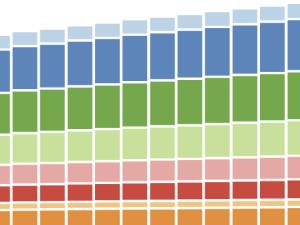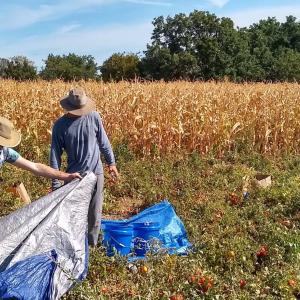Search
Data, Interactive-Tools, and AI for Actionable Change in Ending Plastic Pollution
The research is clear, plastic pollution has become a global crisis, with 8.3 billion metric tons of plastic waste produced by 2015 (Geyer et al. 2017). Often research alone is hard to put into a usable form for action, but we identified a clear path to make a difference. The Eric and Wendy Schmidt Center for Data Science & Environment at Berkeley (Schmidt DSE) teamed up with University of Santa Barbara researchers to build a bridge from a research model to an interactive data visualization tool that can be used by policymakers to form laws on global plastic.
Nick Gondek
Nick Gondek is a Data Scientist / Research Software Engineer at the Eric and Wendy Schmidt Center for Data Science and Environment (DSE). He is dedicated to creating simple and scalable data infrastructure to address complex challenges in our changing environment, particularly within conservation biology, agriculture, and social science.
Webinar: Policy Simulation Tool in Support of the UN Global Plastics Treaty
Inviting those engaging in any capacity with the Intergovernmental Negotiating Committee (INC) on Plastic Pollution to join a webinar sharing first key insights from a research program evaluating the impact that specific policies contained in the INC zero draft could have on curbing plastic pollution.
Science Storytelling for Impact Workshops
Free and open to graduate students and postdocs in any environmental discipline, the Eric and Wendy Schmidt Center for Data Science & Environment (DSE) and partners are thrilled to host Dr. Carlie Wiener, Director of Communications, Schmidt Ocean Institute and a panel of science communication experts for two free science storytelling for impact workshops on October 17 or 18th.
Global Plastics Treaty Negotiations and Policy Tool
Open Source![]()
This interactive policy simulation environment which projects plastic under different scenarios using machine learning is available in pre-release at https://global-plastics-tool.org and open source at https://github.com/SchmidtDSE/plastics-prototype.
Honing in on our inaugural program areas
DSE began as a broad vision to utilize data for making a positive impact on environmental challenges. Our funders and founding team were united by an optimism for our planet's health and the pressing need to use everything at our disposal to counter our climate uncertain future. They saw a clear path to leverage current research and expertise and use data to uncover insights for action. Underlying our efforts are open practices - open data, open science, and open source to create work that can be transparent, scalable, easily accessible, and designed with community support.
[Closed] We are Hiring! Schmidt DSE seeks a Research Software Engineer / Data Scientist
The Eric and Wendy Schmidt Center for Data Science & Environment at Berkeley (DSE) seeks a Research Software Engineer / Data Scientist with a passion for using creative coding methods to help develop and implement visualizations and other interactive data-enabled solutions who would be excited to see their work have an impact on the challenges facing our environment.
Incentivizing Regenerative Agriculture Practices
Diversified agricultural practices can function as both mechanisms of climate harm reduction and drivers of agricultural climate resilience. UC Berkeley Agroecology (Dr.







